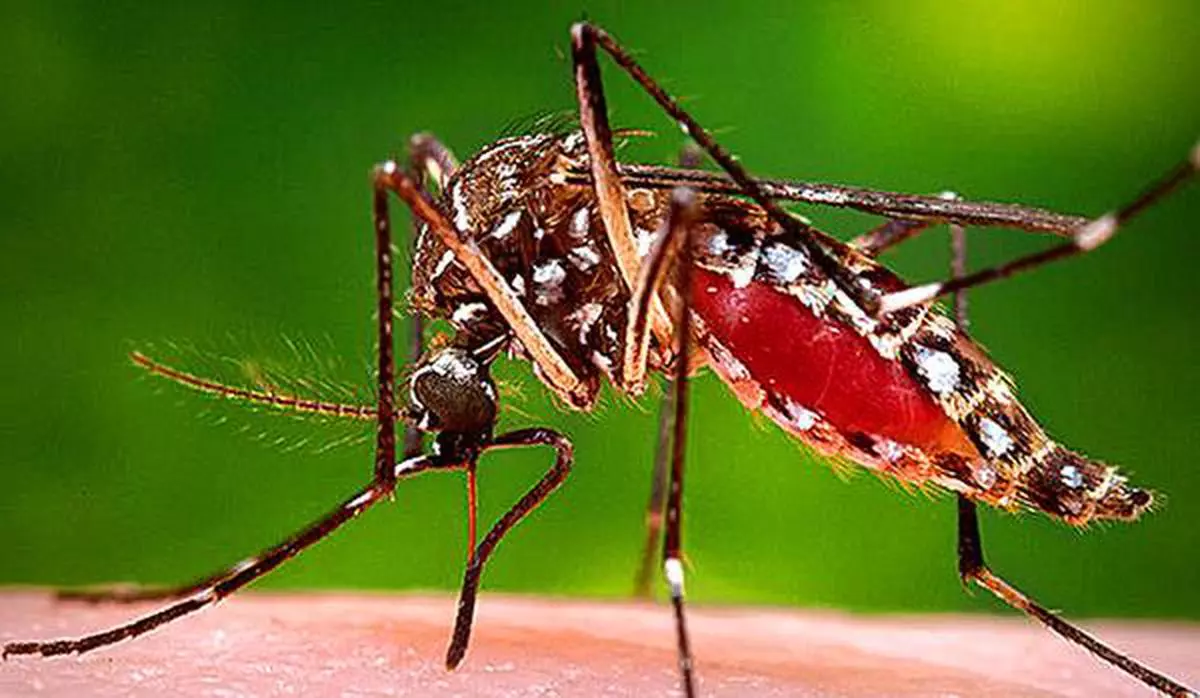Mosquitoes are the deadliest animals on the planet, responsible for more human deaths than any other creature. They spread diseases like malaria, dengue fever, and West Nile virus, making them a serious threat to public health.
Even if the mosquitoes in your area aren't carriers of dangerous diseases, they're still a major annoyance. Learn how mosquitoes hunt us, what attracts them, and most importantly, what scientists recommend to keep them away.
How Mosquitoes Bite and Why It Itches
Mosquitoes are mostly harmless nectar-drinkers, helping to pollinate plants. However, female mosquitoes need a special ingredient for egg production: blood.
The biting process is surprisingly complex. Using their specialized mouthparts, they pierce the skin and search for a blood vessel, like a tiny vampire. Once found, they suck up the blood, similar to drinking through a straw.
To avoid detection, mosquitoes have developed a sneaky trick. They inject a cocktail of proteins while they bite, acting as painkillers and preventing blood clotting. This allows them to feed quickly and escape before you notice. The itching and swelling we experience are delayed reactions to these proteins, triggered by our body's inflammatory response.
Different people react differently to mosquito bites. Some get away with a few small bumps, while others experience large, itchy welts. Interestingly, how attractive you think you are to mosquitoes doesn't necessarily match reality. It's more about how your body reacts to the bite and how much you notice the itching.
The Intricate World of Mosquito Attraction
While the science behind mosquito attraction is complex, ongoing research is shedding light on what makes certain individuals more appealing to these pesky insects. A recent study published in Current Biology by Dr. McMeniman found that mosquitoes react differently to the unique chemical blends that make up each person's body odor, preferring some over others.
Identifying the precise elements that make someone a mosquito magnet is not straightforward. Dr. McMeniman explains, "Various factors can influence the composition of your scent, including your diet, genetics, and physiology. These can affect the molecules your body emits and the makeup of the microbiome living on your skin."
While the idea of replicating the odor profile of people mosquitoes tend to avoid and turning it into a repellent spray is appealing, it's currently not feasible. "We are still unraveling the chemistry of this process," says Dr. McMeniman.
Despite the intricacies of scent preferences, researchers have identified a general pattern in how mosquitoes locate us. "First they smell you, then they see you, and when they get close enough, about a meter away, they can detect the heat coming off your skin," McMeniman explains.
Carbon dioxide, the gas we exhale, is a crucial long-distance attractant for mosquitoes. Dr. Kristen Healy, an associate professor of entomology at Louisiana State University, notes, "Most mosquitoes are universally attracted to CO₂ from afar. Studies have shown that CO₂ from our breath, especially in large groups, can draw them in."
Body heat and sweat also seem to play a role. Dr. Healy's personal experience supports this hypothesis. "If I'm active and sweating, I definitely notice a difference in mosquito attraction because they can pick up on those additional odors," she says.
Over the years, several studies have suggested other potential factors in mosquito attraction, such as beer consumption and certain colors like red. However, McMeniman emphasizes the need for larger-scale studies to confirm the generality of these findings across different individuals. So, for now, don't rush to discard your red clothes or pour out your beer just yet.
While scientists continue to explore the nuances of mosquito attraction, it's clear that a complex interplay of factors, including individual body odor, carbon dioxide emissions, heat, and potentially other elements like diet and clothing choices, contribute to making some people more appealing to these insects than others. Understanding these mechanisms is crucial for developing effective mosquito repellents and mitigating the spread of mosquito-borne diseases.
Navigating the World of Mosquito Repellents
While the complexities surrounding mosquito attraction remain a subject of ongoing research, the market is flooded with devices and sprays claiming to offer protection. However, not all solutions are created equal.
Newfangled devices like ultrasonic mosquito repellents often lack scientific backing and are "not necessarily supported by research," says Dr. Healy. She cautions against trusting products claiming 100% effectiveness in killing mosquitoes.
Devices that disperse insect repellent over a wider area can be effective, but they come with a caveat. "It's important to note that these are insecticides," says Dr. McMeniman. "While they have passed EPA registration standards, you are essentially walking around in a cloud of insecticide."
Instead of relying on unproven gadgets, both Dr. Healy and Dr. McMeniman recommend sticking to tried-and-true methods for mosquito bite prevention.
"Covering up as much skin as possible during the summer is crucial," advises Dr. McMeniman. "Additionally, apply an EPA-registered insect repellent containing ingredients like DEET or picaridin." For those preferring natural options, he recommends oil of lemon eucalyptus.
Keeping mosquitoes out of your home is equally important. Ensure windows have screens and use a fan or air conditioner at night. Regularly remove debris and drain standing water in your yard to prevent mosquito breeding grounds.
It's important to remember that there's no single solution to completely eliminate mosquito bites. While various studies offer intriguing insights, there's no magical diet, color to avoid, or specific soap that will guarantee protection.
Mosquitoes are part of the natural world, and coexisting with them means taking sensible precautions. Using a reliable bug spray and reapplying it as needed is a practical and effective way to minimize your risk of being bitten.
Understanding the nuances of mosquito attraction and repellent options empowers us to make informed decisions. While the search for a perfect solution continues, combining proven methods like protective clothing, EPA-registered repellents, and environmental control measures offers the best defense against these persistent insects. Remember, staying informed and adapting your approach based on individual needs and preferences is key to enjoying the outdoors while minimizing the annoyance of mosquito bites.





























0 Comments